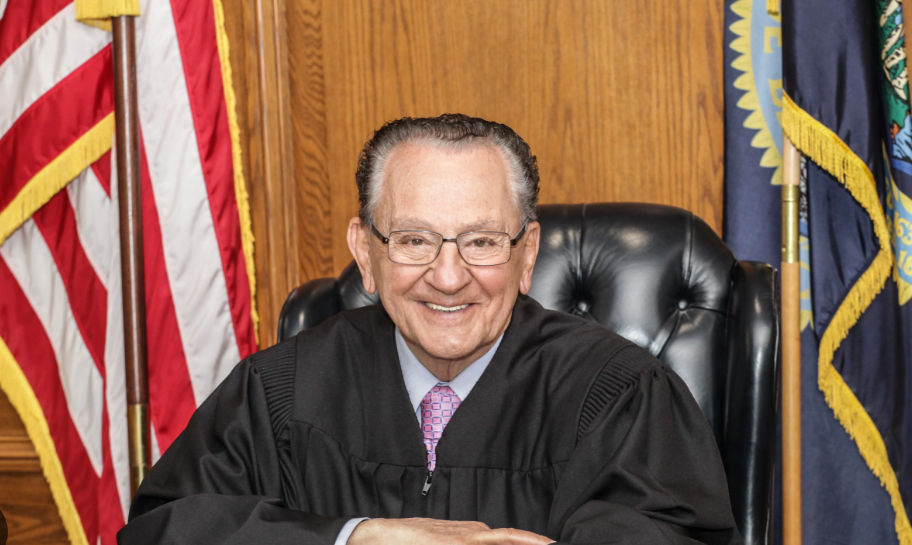“Miss, I need help!”
“Have a good day, Mister!”
“Miss, can I go to the bathroom?”
Many students at South refer to their teachers without their last names, solely as “Miss” or “Mister.” Teachers have nuanced feelings about being called “Miss” or “Mister,” something that many of them were first exposed to when they began teaching in Worcester. While being “Miss” or “Mister” doesn’t define their relationships with students, some teachers find it has an effect.
Dropping teachers’ last names is ingrained in the culture of the school, some students say; they hear others around them doing it and slowly pick up the habit. Others aren’t sure of a teacher’s name or how to pronounce it. When asked, teachers weren’t sure where the practice originated, either, and they too see it as a part of the school’s atmosphere.
Math teacher Mr. Earley is not bothered when students refer to him as “Mister.” He views it as a cultural and social norm within South. In other places, like at private schools where he taught in Georgia, students are always instructed to refer to their teachers as “Mr.” or “Ms. [Last Name].” He feels that South is simply a different environment, with different expectations. When he started teaching at South eight years ago, it wasn’t a major adjustment to make.
“I don’t think there’s any disrespect in it,” he said. It’s not a big deal, simply the way that students at school refer to their teachers. When his job is to teach students math and help them succeed, the name that students call him is a more minor topic—as long as it’s polite. “Disrespect is when they call you something else,” he said, half-smiling.
Like Mr. Earley, Chemistry teacher Mx. K says that they don’t mind being called only “Mx.” Some students call them “Mx.,” others call them “Mx. K.” Either way is fine, they said.
However, when students call them “Miss,” they take the time to correct the student. “My gender is really important to me,” they said. “And for me, people’s perception of me is important. So when people call me ‘Miss,’ it makes me frustrated, because I feel like they’re thinking of me as a woman. And I do not like it when people think of me as a woman.”
Often, students correct themselves, or understand when Mx. K corrects them. As the years have passed, Mx. K encounters fewer and fewer “defiant” students who do not want to call them “Mx.”
Assistant Principal Ms. Houlihan wonders if there are particular reasons, other than convenience or peer influence, that students don’t always say her last name. Maybe they’re just not comfortable pronouncing “Houlihan,” she said, especially if they are unfamiliar with English. Because of this, she has “never had a second thought” about being called “Miss.”
Spanish teacher Ms. DeHaan also wonders if the habit is influenced by South’s multicultural environment—it reminds her of when she taught in Chile, where students sometimes refer to teachers by more informal terms.
In Chile, students would have typically called her “Profe,” short for “Profesora.” Since she was the English-speaking teacher, they wanted to know the equivalent in English. Sometimes, students would call her “teacher,” but that felt strange. “Miss” was a good solution.
In class at South, when students call her “Miss,” she sees it as more casual. “If someone says, ‘Ms. DeHaan,’ it kind of takes me aback,” she said. “But when I hear ‘Miss, I need help,’ I react a lot quicker.”
Still, when she is in a more personal setting with a student, she appreciates if they call her “Ms. DeHaan,” whether they are staying after school or asking her to write a recommendation for them.
“It’s a one-on-one [situation],” she said. “I’m doing something for you, and I feel like you can call me by my name.”
Mrs. Walton, a special education teacher, also feels more respected when her students call her “Mrs. Walton.”
She feels that because she puts in the time to learn her students’ names, that commitment should be reciprocated. Beyond knowing her last name, it matters to her that she is “Mrs. Walton.”
Getting married was “a milestone in my own life,” she said, so it is important to be “Mrs. Walton.”
She believes her role as a teacher is to teach students the curriculum, but also, “we are here in school to learn how to be around [and respect] other people.” Calling teachers by the correct name is part of that.
Ms. Houlihan doesn’t see any disrespect in being called “Miss,” but “when you have a really good relationship with a student and they don’t know your name,” she said, “it’s disheartening.”
Though Ms. Houlihan understands why students might call her “Miss,” it is meaningful when students know or use her last name, and it helps her to feel more appreciated.







